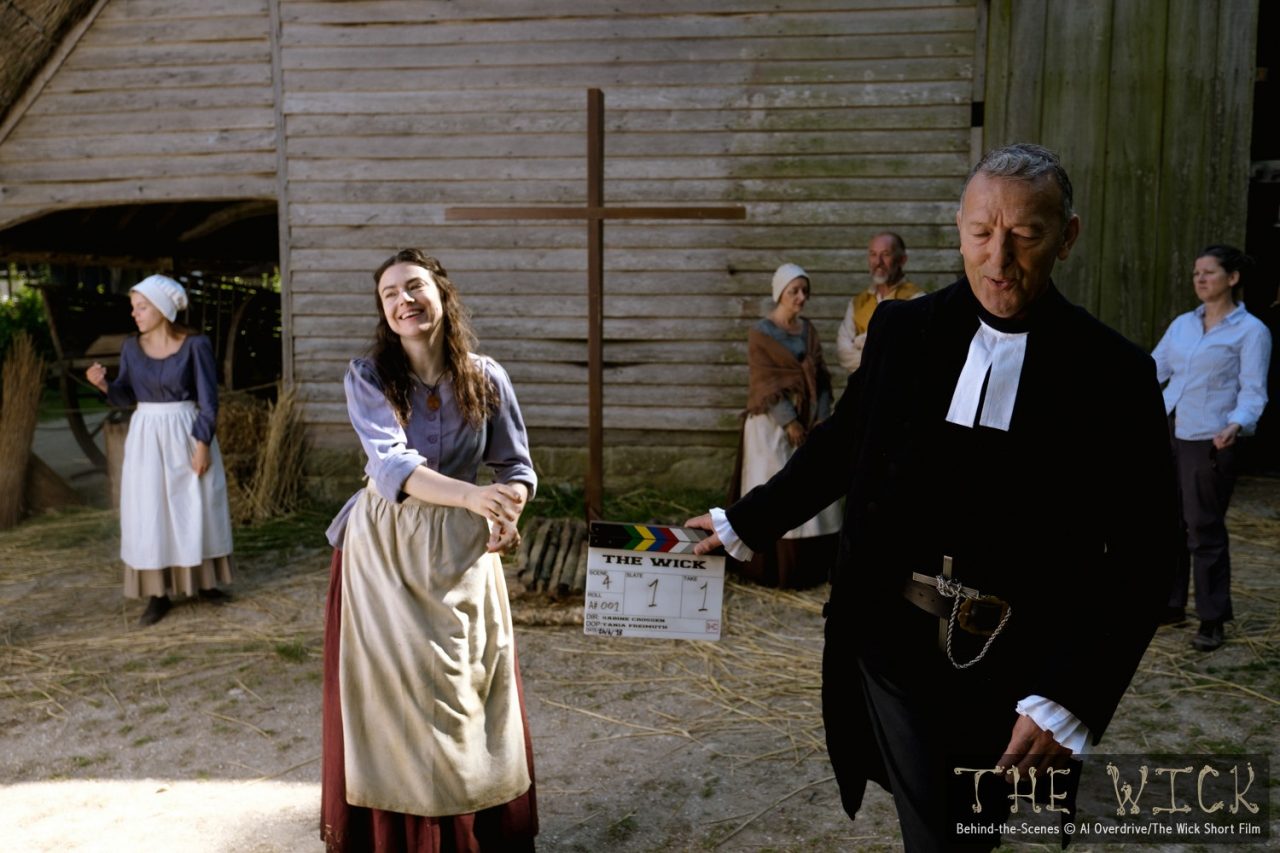Interview with Michelle Coverley, writer/producer of The Wick
Back to BlogInterview conducted by Leeds Beckett University Business School journalism student, Gemma Ryles. The Northern Film School at Leeds Beckett is the official education partner of the 2021 Harrogate Film Festival.
Michelle Coverley had never written a script before this filmmaking journey. Her first short, The Wick, finished production at the end of 2019. So far it has won four awards, including Best Editing in the Top Indie Film Awards 2020, and has been nominated for over a dozen others awards.
Her film is a dark, period thriller set in early rural England, and examines how women and children are villainized through local witch hunts. The main character, played by Coverley, witnesses her sister’s lawless murder at the hands of the local religious leader and she realises she must end the barbaric persecution against women and stop these outdated beliefs.

The film is set in 1800’s England, with authentic costumes and backdrops. The characters speak in modern-day English to portray the fact that witch hunts are still occurring in the world today, and many women are being silenced.
Moreover, the film touches on the #MeToo and #TimesUp issues, showing women who are being pushed into submissive positions and held to the expectations of the powerful men in their lives. Despite being filmed before the pandemic, the film also draws relations to the current state of society, where people are being ‘othered’ and everyone is unsure of who and what they should trust.
Along with compelling acting, with talents such as EastEnders and Doctor Who’s Ian Reddington, the film portrays the dread and fear the main character feels. The modern music also further defines how the film is using an older setting to depict modern-day issues.
The 15-minute film manages to cover numerous issues that are topical and relevant today, and it has helped to raise awareness of the unfair treatment that many people are subjected to across the world. Despite being published during the first wave of Coronavirus, the film has been praised all over the world and is being played at numerous film festivals in the UK and abroad. It is an interesting story with compelling acting and storytelling and should be watched by anyone who is interested in women’s issues or wants to better understand the ways people are discriminated against and othered in society.